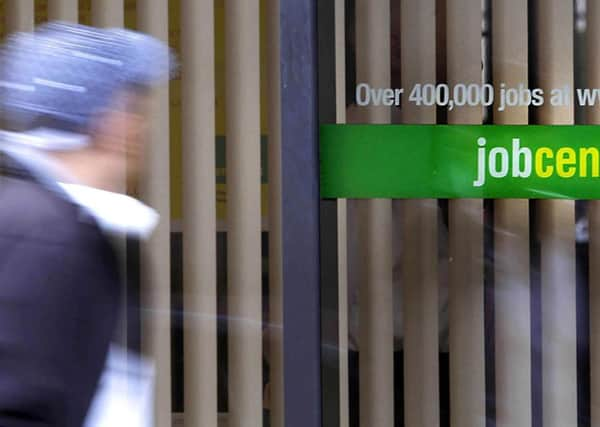Jane Devine: Withdrawing benefits not a solution


The situation is worse when applied to young people not in education, employment or training (often referred to as NEETs). For this group, 40 per cent had experienced symptoms of mental illness, including feeling suicidal, having panic attacks or hating themselves.
The report focuses on grim employment prospects as the reason for these findings, with more than 900,000 people aged 16 to 24 currently unemployed in the UK.
Advertisement
Hide AdAdvertisement
Hide AdThese are people with their whole lives ahead of them. They are not burned out by work or family; they are less likely to have dependents or crippling debt; they are more likely to be flexible and adaptable in both career choice and location. Yet they are depressed, filled with self loathing and in some cases considering taking their own lives.
When I left university in 1999 I walked straight into a job, so did most of my peers. It wasn’t very well paid, but it was more money than I’d ever had and it led on to greater opportunities. I am not claiming to know what it is like to be faced with unemployment and to live on benefits as a young adult. I do however believe that there are a couple of groups glossed over in the discussions which have resulted from this research.
There are the young people for whom this is not new, for whom this has always been the case. Young people from deprived backgrounds where being in employment is the exception.
There are also young people who have grown up in care, whose prospects are far worse than any other group. They are not only over-represented in the unemployment statistics, but also in the prison population, homeless population, are more likely to have drug and alcohol addictions and suffer from mental ill health.
Their prospects have always been bad. Their health has always suffered.
Then there is the other end of the scale, where those affected are children from middle class or wealthy backgrounds. No one is immune when unemployment is so high, but it can be easier to bear when expectations are realistic. Our current generation of young people are often referred to as the generation that gets nothing: no jobs, no free education (apart from in Scotland) and crippling national debt. But this generation of young people has grown up in a time where living standards have increased with each generation: with children always expected to do better than their parents. Perhaps now the reality of leaving home and not being able to afford a similar standard of living makes life look bleak.
It’s a pity that it takes an issue to affect the mainstream of a population for people to pay attention. It’s also a pity that David Cameron’s solution is the “tough love” of withdrawing benefits. You can’t force people to take jobs that are not there. That won’t make anyone happy.